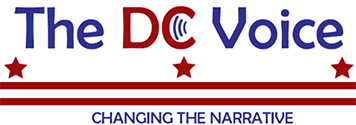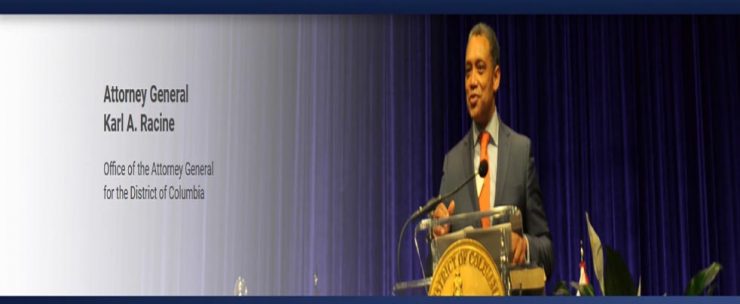Attorneys General Oppose Trump Administration Attempt to Block Life-Saving “Safe Injection Sites” for High-Risk Opioid Users
WASHINGTON, D.C. – Attorney General Karl A. Racine today led a coalition of 10 Attorneys General in supporting the rights of states to enact public health policies that can prevent opioid overdoses and save lives. In a friend-of-the-court brief filed today in United States v. Safehouse before the U.S. Court of Appeals for the Third Circuit, the coalition opposes a Trump administration effort to stop Safehouse, a Pennsylvania nonprofit, from operating a life-saving “safe injection site” that can prevent opioid overdose deaths. This medically supervised site will allow high-risk users to consume opioids and receive immediate medical care in the event of an overdose. The District is one of the hardest-hit jurisdictions of the opioid crisis, ranking seventh among states with the highest rate of opioid overdose deaths. It is crucial for states to maintain authority to enact public health solutions that can save residents’ lives.
“As the District and states across the country experience the devastating effects of the opioid crisis, it is critical that jurisdictions be able to enact live-saving solutions that fit the needs of their residents,” said AG Racine. “Our coalition of State Attorneys General supports Safehouse’s right to operate a safe injection site that can prevent opioid overdose deaths. The federal government should not seek to block locally supported public health interventions that are data-driven and can save lives.”
Safehouse is a Philadelphia-based nonprofit that plans to operate a medically supervised “safe injection site.” This medical supervision saves lives because death can occur within minutes of using heroin or fentanyl, a dangerous synthetic opioid—sometimes too quickly for emergency responders to arrive on the scene. These sites also reduce the risks associated with public usage and contaminated needles. Safehouse also plans to offer drug treatment options, primary medical care, and wraparound social services that can help treat those suffering from opioid use disorder. Although no safe injection site has been opened in the United States, about 100 sites operate in 60 different cities in Canada, Australia, and many European nations.
According to the Centers for Disease Control and Prevention, 128 Americans die each day from an opioid overdose. Opioid deaths have been on the rise in the United States since 1999, based largely on the proliferation of opioid prescriptions. The death toll now totals nearly 450,000. In the first ten months of 2019, the District recorded 220 opioid overdose deaths—a 22 percent increase when compared to the same time period in 2018.
In July 2019, AG Racine led a multistate brief filed in the U.S. District Court for the Eastern District of Pennsylvania supporting Safehouse’s right to operate a safe injection site. The court ruled that Safehouse’s planned site does not violate federal law, and today’s amicus brief supports Safehouse in this same case on appeal. In their brief, the State Attorneys General argue that states have the legal right to regulate the practice of medicine that would allow medical interventions like safe injection sites because:
- States have a well-established role in enacting public health and safety programs: States are on the front lines battling the opioid crisis and have historically enjoyed broad powers regarding healthcare protections for their residents. For example, many states have implemented Good Samaritan laws, which encourage victims and bystanders to seek help for those experiencing a drug overdose by offering limited immunity from drug-related charges. States have also implemented syringe exchange programs which provide drug users with clean needles to prevent the spread of diseases. It is crucial that states and localities maintain the flexibility to act quickly to adopt public health solutions that address their residents’ needs.
- Federal law does not prevent States from enacting innovative public health solutions: The federal government is seeking to prevent the use of safe injection sites, arguing that the use of illegal drugs on their premises violates the Controlled Substances Act (“CSA”). However, the CSA, which includes criminal penalties, was intended to help law enforcement target crack houses and drug use at rave parties—not to prohibit life-saving public health interventions like safe injection sites. Indeed, courts have upheld similar interventions like Good Samaritan Laws which prioritize public health objectives over criminal prosecution.
Joining the District of Columbia in the today’s amicus brief are the State Attorneys General from California, Delaware, Illinois, Michigan, Minnesota, New Mexico, Oregon, Vermont, and Virginia.
A copy of the brief is available at: https://oag.dc.gov/sites/default/files/2020-07/US-v-Safehouse-Third-Circuit-Amicus.pdf
Fighting the Opioid Crisis
This amicus brief is part of OAG’s efforts to protect District residents from the opioid crisis. In 2018, the D.C. Council passed a permanent version of the Synthetics Abatement and Full Enforcement Drug Control Act (Safe DC) proposed by AG Racine to make it easier to prosecute the suppliers and distributors of dangerous drugs, including the synthetic opioid fentanyl. In June 2019, AG Racine sued Purdue Pharma and former top executive Richard Sackler for misleading patients, doctors, and communities about the danger of opioids in pursuit of massive profits from sales.


















Add comment